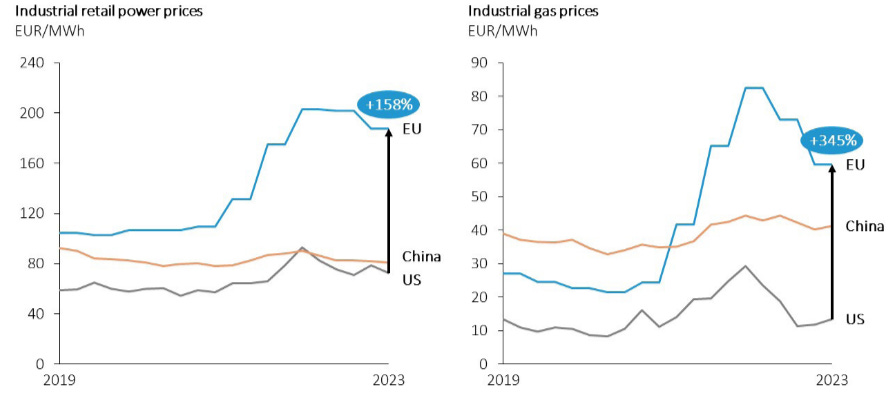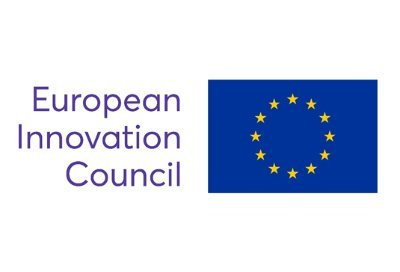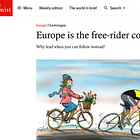European Innovation at a Crossroads
The old continent struggles to commercialize its innovations
Lithium Horizons is a reader-supported publication. For deeper insights, including in-depth analysis, the latest developments, and expert insights into the battery, energy, and materials industries, subscribe below.
In light of Northvolt’s official bankruptcy earlier this month and the geopolitical changes since Trump took power, I believe it’s an opportune moment to revisit the topic of European competitiveness.
Last year, I wrote an article on this very issue, analyzing the market capitalization of various companies. The findings were sobering: European companies were nowhere to be seen in the Top 10. I concluded that piece by proposing measures to help Europe reclaim its competitive standing.
In my analysis I wrote:
‘‘The International Energy Agency chief, Fatih Birol, proposed that Europe needs ‘’a new industrial master plan’’. Europe needs exactly less of that. Europe has been very good at proposing plans, but very poor in executing these plans. Europe holds 38% more cleantech patents than the USA and twice more than China, yet these patents are not seeing the light of the day.’’ — Europe’s Technological Stagnation
At the time, I argued that Europe faces significant challenges in execution—specifically, in translating its innovations into successful commercial enterprises. I concluded the article by emphasizing that this issue was of strategic importance.
Nearly a year later, the situation has only deteriorated. While Northvolt has grabbed headlines as a disaster for Europe’s battery industry, other sectors have been similarly affected. Today, not only do new commercial entrants struggle to compete due to regulatory hurdles and a fragmented market, but even established giants like Volkswagen find themselves hamstrung by soaring energy prices (see Figure 1).

This dire situation was highlighted by Mario Draghi who echoes my earlier point by stating that Europe is failing to translate innovation into commercialization. Europe possesses the capabilities to compete on the global stage, yet it is squandering its own potential.
Tariffs won’t solve the problem as they fail to address the underlying issues. They’re merely a band-aid, offering temporary relief to struggling industries. Are we prepared to apply them at the cost of losing share in the global market?
Instead, to climb out of the hole it has dug itself into, Europe must fundamentally shift its approach. This is especially important for deep tech sectors—such as artificial intelligence, energy, and materials industries—which require substantial investment, streamlined regulations, and a unified market to translate inventions to commercial products.
Europe stands at a crossroads. Its inability to bridge the gap between innovation and commercialization isn’t just a missed opportunity—it’s a strategic liability. If we persist with business as usual, Europe’s descent into irrelevance will only accelerate.
Yet, the potential remains. Europe boasts exceptional talent, cutting-edge research, and the capacity to lead. What is needed is a unified vision, unified approach and unified execution.
That’s all for now. Until next time 🔋!
Thank you for reading! We appreciate your engagement and invite you to subscribe for more updates. Please share your thoughts and feedback in the comments below. If there's a specific topic you'd like us to explore in future editions, feel free to let us know in the comments. Your input helps us tailor our content to better meet your interests.




